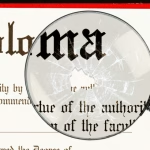I chose to ignore the gusting wind. I was a thousand miles away at my St. Louis home, speaking on the phone with the rabbi who would conduct my mother’s funeral. We discussed the service, her life, her family, and other material and spiritual issues. Mom had been ill for more than a year, but in December, her condition began to deteriorate quickly. She was admitted to hospice care late last month. I assisted in caring for her fragile body alongside her nurses and aides as she gradually lost the ability to breathe, speak, or eat. She let comfort take over, finally free of pain.
I informed the rabbi that we should probably wrap up our conversation later when my smartphone’s emergency alert began to sound. My wife had just called for me to follow her as she hurried down the stairs to the basement. I did, but I stayed because the sky was so gloomy. This storm was unlike any I had ever seen. I would later learn that this was because I had never been inside a tornado of the EF-3 category, which has winds of more than 150 mph, like the one that ripped through metro St. Louis on Friday. However, I was unaware of that while I was on my way to the basement. I watched in horror as a mature shingle oak scratched the ground, a surreal sight. When the storm placed the tree in my yard, it appeared to me to be gentle. As I had done for my mother the previous week, I witnessed it holding the oak to its now-certain end.
By the time I got to the basement and heard windows breaking, I had lost my sense of relaxation. Since glass was created by humans, any breakage of it is invariably linked to human aggression or mishap, such as a pogrom, a child’s errant baseball, or an intrusion by a burglar. Although I was aware that nature can also force itself on the constructed environment, I was still caught off guard by the feeling that it was happening.
As a resident of the Midwest in the era of man-made climate change, I have waited for tornado warnings in the basement for many hours. Even though we all carry phones and tablets and the power usually remains on, being down there in storm isolation is usually boring. We may be annoyed that official warnings don’t usually have much of an impact. We say the tornadoes never come through here. West of the city, they always go. As of Friday morning, I knew that baseball-sized hail was more of a threat than tornadoes. However, you feel insignificant once a tornado has started to spin around your house. Who are you to assume you understand how any of this operates?
My wife cradled my daughter in the basement and begged me to stop straying toward the windows and walls. I didn’t do it out of conceit or even fear. I was captivated. Being a party to a force far bigger than myself meant watching the storm. New experiences become increasingly valuable as one ages and gains experience. I had never seen one like this before, embossed by the strength of the strong winds. Immanuel Kant believed that the safety of distance was necessary to appreciate the sublime. I now questioned if he was mistaken. Just as one cannot fully appreciate vertigo by observing roller coasters from the ground, perhaps the sublime must be viscerally confronted in order to be complete.
The loss of human life is a source of sorrow and concern. When I tell them my mother passed away, they say, “I’m sorry for your loss.” When the storm has passed, they inquire, “Is everyone okay?” St. Louis saw dozens of injuries and at least five fatalities on Friday. However, it still didn’t feel right to announce that nobody on our street had been harmed when we came out of our houses to inspect the damage, which included a splay of tar roofing, air conditioner condensers, and insulation thrown from nearby buildings.
The trees are to blame for that. Just west of St. Louis, in the wealthy town of Clayton, the tornado seems to have started. As it moved northeast, it ripped through residential neighborhoods and crossed the edge of Forest Park, the location of the 1904 World’s Fair. They contain residential streets that were constructed in part by Gilded Age and progressive industrialists and planned in the late 19th century. Since then, the tree canopy at the park and in the surrounding neighborhoods has increased to a height of about 80 feet. The neatly arranged rows of pin oaks on my block had finally begun to leaf out a few weeks prior, providing an arch of shade over the entire street after a long and gloomy winter.
Now, nearly all of them have been destroyed, either disfigured or completely destroyed by shrapnel. It would be inaccurate to say that they cannot be replaced; it simply takes decades for new ones to grow. Even so, in a way, this arboreal tragedy felt sublime: over a century of gradual advancement erased in a matter of seconds. That is not how I will ever see those trees again, but then again, neither would the people who planted them in the early 1900s when the saplings were too young to provide shade.
Trees are just as mortal as people. By all accounts, the pin oaks had already outlived their normal lifespan of 100 to 120 years, and many had already experienced the negative effects of compaction and poorly drained soil. Every year, they were killed by the pair, but there were still enough of them left to give my neighbors and I the false impression that their shade would last forever and that we were entitled to it. That illusion was dashed by the tornado.
By modern standards, my mother was young to die at 75, but by historical standards, she was old. In search of a straightforward response, friends and family are constantly asking, “What did she have?” However, she possessed something more nebulous, a collection of related but separate illnesses that, when combined and unintentionally seasoned, caused a gradual decline followed by a rapid one. Seeking a neat term to describe misfortune, such as cancer or stroke, is a category error akin to attempting to lasso the ocean. It betrays the mystery of accident and fortune, life and death. That she would suffer this fate is no more or less unjust than a tornado sweeping down my upscale street. Why not us if someone else experiences such things?
Before his death two years ago, Mom and Dad were married for fifty-two years. My mother embraced the fact that they worked together and did everything else together, which would drive me insane. Due to a horrific car accident in his teens, my father had a disability that he always attempted to hide. I wrote about it for The Atlantic. It’s true that my mother stayed so attached to him to care for him, especially in his later years. However, she also chose to keep that close relationship going. It seemed appropriate in some way to see her confined to the same hospital bed that he had occupied, in the same room, and on the same prescription drugs. They would work together on this as well, albeit a little separately.
Mom monitored the weather closely wherever I lived, which, in her opinion, was always too far away. When storms were predicted, she would text or call. Are you all right? She may inquire. And I would pretend to be a churlish son, responding Don’t worry, mom; we’re all right. As though I had a say in the matter, the tornadoes always pass to the west. However, she was no longer able to voice her concerns when she was finally justified in doing so. This is better described as indifference, though I am tempted to call it irony.
It’s unfortunate that apathy is only perceived negatively. The storm’s disdain was both amazing and terrifying. The gale whipped around my house in the basement, and then I felt it in the street, among the hurtled air-conditioning condensers and fallen oaks. And earlier that week, when Mom’s fever was at its worst, I experienced the same sense of the sublime at her bedside. Even though Mom and I weren’t the intended victims of disaster, it still found us. The indifference of the universe is both beautiful and frightening.












